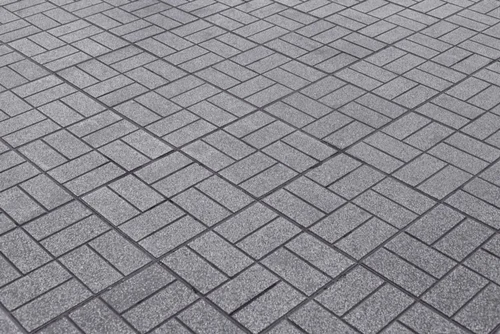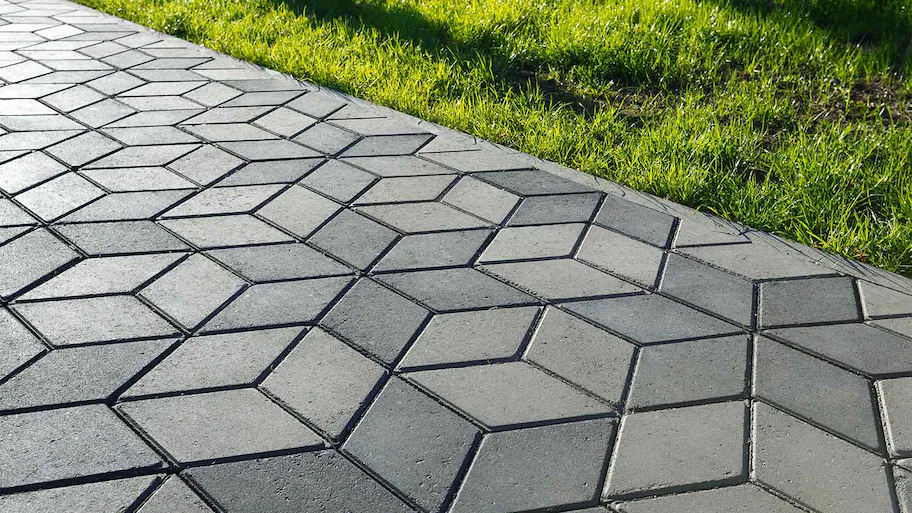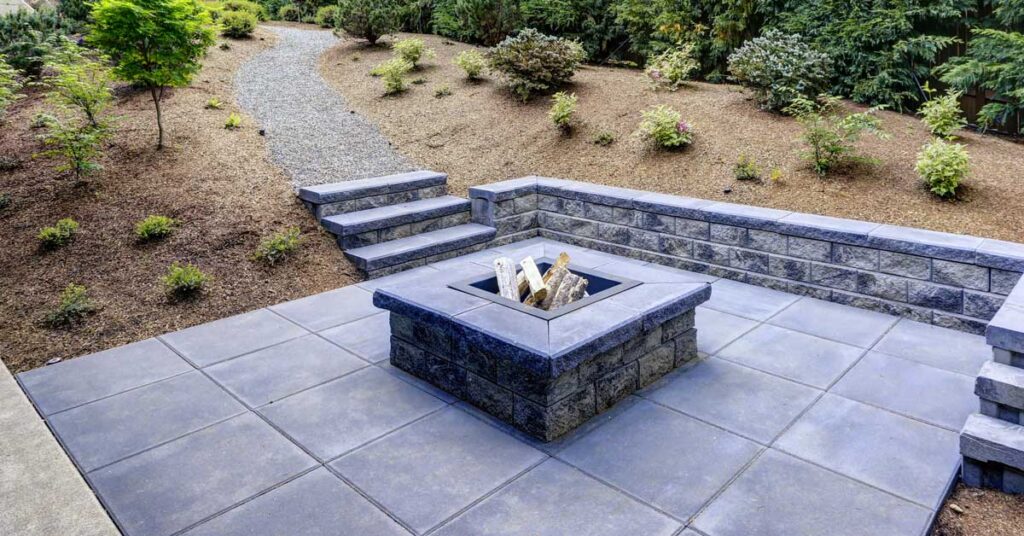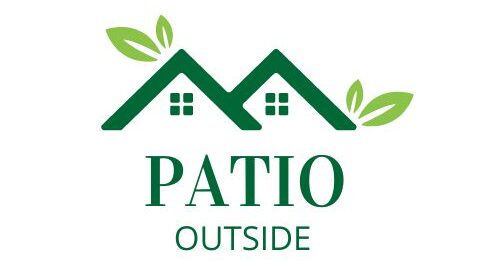What is a Patio Stone?
A patio stone is a hard surface used for outdoor spaces such as patios, walkways, and driveways. They can be made from various materials such as concrete, natural stone, clay bricks, and more. Each type of patio stone comes with its own set of advantages and disadvantages in terms of cost, durability, and maintenance. Choosing the right type of patio stone for your outdoor space requires careful consideration of these factors. In this article, we will explore the pros and cons of different types of patio stones to help you make an informed decision.
Advantages and Disadvantages of Different Types of Patio Stones

When it comes to choosing the right type of patio stone for your outdoor space, understanding the advantages and disadvantages of each can help you make a well-informed decision. Let’s explore the different types of patio stones and what makes them great options for your patio.
Concrete Pavers:
Concrete pavers are a very popular choice of patio stone for several reasons. They are affordable and come in a variety of colors and sizes. They are also sturdy and durable, making them perfect for high traffic areas. Additionally, concrete pavers are easy to install and maintain. On the downside, they may not be the most visually appealing option as they lack the natural elegance of other types of patio stones.
Natural Stone:
Natural stone such as slate, granite, and sandstone is another great option for patio stones. They offer a unique, natural appearance that cannot be duplicated with other materials. They are strong and long-lasting, and they can withstand harsh climates and high traffic areas. The downside of natural stone is that it can be expensive upfront, and natural wear and tear can occur with normal use. Also, not all types of natural stone are suitable for outdoor use.
Brick:
Brick is a classic choice for patios that offers a timeless, elegant look. Bricks are strong and durable, and can also be used to create custom-shaped patios. Moreover, they are usually affordable and easy to maintain. The downside of brick patios is that they are not the most comfortable for seating since they are not very level.
Pea Gravel:
Pea gravel patios are a unique, affordable option for those on a budget. They are versatile and can be used to create various shapes and designs, and they are eco-friendly too. Their disadvantage is that they are not as durable as other options as they tend to shift and spread over time, and they are not always comfortable for seating or walking barefoot.
In conclusion, understanding the properties of each type of patio stone and its advantages and disadvantages can help you make the right decision for your patio. From the popular choices listed above, you can choose the one that suits your budget and preferences the most, keeping in mind the kind of outdoor activities you want to do on your patio.
Cheap Options for Patio Stones
If you’re on a budget but still want to create an attractive outdoor patio space, there are several affordable options for patio stones. Concrete pavers offer a versatile option that is both durable and easy to install. For those who want a classic look, brick pavers are a timeless choice with a wide range of customization options.
You can also go for natural stone, though it can be more expensive upfront, but they offer a unique, natural appearance that cannot be duplicated with other materials. Pea gravel patios provide a unique, eco-friendly option that is inexpensive, but not as durable as other materials. Finally, cheap pavers provide an inexpensive option for those who are looking for basic functionality and don’t mind sacrificing style for affordability. With all these choices available, there’s no need to break the bank to create your own unique outdoor space.
Concrete Pavers

Concrete pavers are an excellent choice for homeowners who want to upgrade their outdoor space at an affordable price. These pavers offer a cost-effective solution for those who desire a functional and beautiful space for entertainment or relaxation. With its versatility and customizable options, concrete pavers have become a popular choice for patios, walkways, driveways, and pool decks.
The average cost of concrete pavers ranges from $4 to $6 per square foot, depending on the size, color and design of the pavers. Concrete pavers can be a DIY project for those who have experience with basic installation techniques, which can help save money on labor costs. However, a professional installation is always recommended for a flawless finish and long-lasting durability.
When installing concrete pavers, it is crucial to have a concrete bond beam or reinforcement along the perimeter of the pavers. This will support and secure the borders, preventing the pavers from shifting or spreading out over time.
To calculate the material needed for a professional installation, you need to determine the area where the pavers will be installed. Measure the length and width, then multiply the two numbers to get the square footage. From there, add 10% extra to account for potential waste or cuts. You will also need to factor in the cost of additional materials, such as base materials and sand/mortar for filling in the gaps between pavers.
In conclusion, concrete pavers are an excellent choice for homeowners looking for a cost-effective and customizable paving material. With an average cost of $4 to $6 per square foot and the option for a DIY project, they provide value and aesthetic appeal. However, to ensure long-lasting durability, a professional installation with a concrete bond beam is recommended.
Brick Pavers

Brick pavers are a popular choice for homeowners who want a classic, timeless look for their outdoor space. They are made of cast or heat-cured clay bricks, which come in a variety of colors and shapes. They vary from neutral tones of red, brown, and gray to brighter hues such as blue, yellow, and even white.
One of the main advantages of using brick pavers is their durability. They can withstand heavy foot traffic and are resistant to cracking and fading. Additionally, they are eco-friendly since they are made from natural and recyclable materials.
In terms of aesthetics, brick pavers offer a unique look that complements both traditional and modern designs. They lend warmth and character to any outdoor space, whether it’s a small pathway or an entire patio. The various colors and shapes make it easy to create custom-shaped patios that stand out from others on the block.
However, there are some potential downsides to using brick pavers. They require a flat surface for installation, which can be more labor-intensive and expensive compared to other options like pea gravel patios. Additionally, the cost of brick pavers can vary greatly depending on the type of paver chosen, with cast pavers being less expensive than heat-cured clay bricks.
Speaking of cost, the average cost of brick pavers ranges from $6 to $12 per square foot. This includes the cost of the pavers themselves as well as the necessary base materials and sand for filling in the gaps between the bricks. If you opt for a professional installation, labor costs can add an additional $5 to $10 per square foot.
Overall, brick pavers are a durable, eco-friendly, and aesthetically appealing choice for homeowners looking to upgrade their outdoor space. While they may require a higher upfront cost compared to other options, their long-lasting durability and unique look make them a worthwhile investment.
Natural Stone

Natural stone is a luxurious and sophisticated choice for designing a patio that exudes elegance and grandeur. This type of material provides an organic and timeless feel that is unparalleled by any other material. There is a wide range of natural stones to choose from when it comes to designing your patio area. Some of the most commonly used natural stones are limestone, flagstone, sandstone, and slate.
One of the biggest advantages of using natural stone for a patio is its durability and longevity. It can withstand heavy foot traffic, harsh weather conditions, and the general wear and tear that comes with daily use. Additionally, natural stone is resistant to scratches and other damage, making it a great choice for outdoor living spaces. Furthermore, natural stone offers a non-slip surface, making it a safe option for areas that might accumulate moisture.
However, there are some downsides to choosing natural stone for a patio. The primary disadvantage is the higher cost compared to other options such as concrete pavers. This is because natural stone requires extensive labor and resources to quarry and manufacture. Moreover, installation costs can be higher due to the weight and size of natural stones, making it more challenging to handle and lay.
The cost of using natural stone can differ depending on the type of stone chosen. For instance, limestone is usually the cheapest option, while slate and flagstone are more expensive. It’s important to note that the cost of natural stone varies depending on each region’s availability, so it’s best to consult with a local supplier to get an accurate price range.
In terms of aesthetics, natural stone offers a unique and authentic look that blends seamlessly with the surrounding environment. It’s an excellent choice for homeowners who want to create a natural and organic atmosphere in their outdoor living space.
Overall, while natural stone may have some downsides, such as the higher cost, the benefits of using this beautiful and durable material make it worth considering when designing your patio. The longevity, scratch resistance, and non-slip surface of this material ensure that your patio will maintain its original beauty over time.
Pea Gravel Patios

Pea gravel patios offer a cost-effective yet stylish option for outdoor living spaces. This crushed stone material is a popular choice for homeowners because of its affordability and ease of installation.
One of the biggest advantages of using pea gravel for patio surfaces is its affordability. Compared to other materials such as natural stone or pavers, pea gravel is relatively inexpensive and can easily fit into a tight budget. Additionally, pea gravel is readily available at most home improvement stores, making it a convenient option.
Another advantage of using pea gravel for patios is its ease of installation. Unlike some other patio materials that require professional installation, pea gravel can be installed by anyone with basic DIY skills. However, it’s important to note that pea gravel can shift over time and requires periodic maintenance to keep it in place.
Before installing a pea gravel patio, it’s essential to prepare the site properly to ensure a level and sturdy base. This involves removing any existing grass or plants, leveling the ground, laying a barrier fabric to prevent weed growth, and adding a sub-base layer of crushed stone or sand.
After preparing the site, the pea gravel can be spread evenly over the area. It’s important to tamp down the gravel to prevent it from shifting and creating any uneven areas.
To add a decorative touch to the pea gravel patio, consider using border materials such as bricks or stones. This can create a more defined and polished look for the outdoor living space.
Overall, pea gravel patios offer a practical and affordable choice for homeowners looking to upgrade their outdoor living areas. With the right preparation and maintenance, pea gravel can provide a beautiful and durable surface for years to come.
Cheap Pavers

Looking for an affordable yet durable solution for your patio installation? Cheap pavers might be the answer you’re looking for. Below, we’ll discuss some types of pavers that won’t break the bank, their estimated costs, durability, and maintenance.
Concrete pavers are a popular option because they are cost-effective and easy to install. Concrete pavers typically cost around $13-$20 per square foot, making them an excellent choice for budget-conscious homeowners. They are also durable and can last up to 25 years if properly maintained. In addition, concrete pavers offer excellent drainage, which means your patio won’t be prone to puddles or flooding during heavy rain.
However, cheap concrete pavers do have some drawbacks. They can fade over time if they are not sealed, and they may crack if exposed to extreme temperatures. They also require some maintenance, such as occasional pressure washing and resealing, to keep them looking their best.
Another affordable option is brick pavers, which typically cost around $14-$20 per square foot. Brick pavers are known for their durability and can last up to 100 years if properly maintained. They also offer a classic and timeless look that can enhance the curb appeal of your home.
Just like concrete pavers, brick pavers also have some disadvantages. They can become discolored over time, and they may shift or become uneven if the ground underneath them is not properly prepared. In addition, they require regular maintenance, such as resealing and filling gaps with sand.
In conclusion, if you’re looking for an affordable and durable solution for your patio installation, cheap pavers might be the way to go. Concrete and brick pavers offer excellent value for the price, and they are relatively easy to install. However, they do require regular maintenance and may have some limitations. Before making your final decision, make sure to weigh both the advantages and disadvantages of each option.
Professional Installation of Cheap Patio Stones
While installing cheap patio stones can save you money, you’ll want to consider the cost of professional installation before you start your outdoor project. Labor costs and installation costs should be factored into your budget to ensure that your patio is installed correctly and lasts for many years to come. In this section, we’ll take a closer look at the costs associated with hiring a professional installer for your patio stones and what factors can affect those costs.
Labor Costs
When it comes to installing cheap patio stones, labor costs can quickly add up. It’s important to budget for high-quality installers since a poorly installed patio can lead to future problems with the project. The costs for professional installation depend on a variety of factors, including the labor rates, experience, project complexity, and location.
Labor rates for patio stone installation vary depending on the size and type of the project. On average, a contractor may charge between $5 and $15 per square foot or $50 to $80 per hour. However, keep in mind that these rates can differ based on the specifics of your project.
Experience and expertise are also factors that can impact labor rates. A more experienced contractor may charge a higher hourly rate, but they may also be able to complete the project faster and with fewer mistakes. On the other hand, less experienced contractors may charge lower rates, but they may require more time and use up more materials, which can increase overall costs.
The complexity of your patio project is another factor that can affect labor rates. For example, if the project requires custom-shaped patio stones or intricate designs, the labor costs will likely be higher. In contrast, a rectangular patio with a simple design could result in lower labor costs.
Location is also a significant factor in determining labor rates. Contractors in urban areas with a higher cost of living may charge more than those in rural areas. Additionally, states may have different licensing requirements or regulations that can impact labor costs.
In summary, when it comes to installing cheap patio stones, labor costs are an important factor to consider and budget for. It’s crucial to find the best installers possible to avoid any future issues with the project. Keep in mind that the labor rates, experience, project complexity, and location can all impact the final cost of your patio stone installation.
Installation Costs
Estimating installation costs for cheap patio stones can be a bit tricky, but it’s important to get an accurate estimate before starting the project. There are several factors to consider that will influence the installation costs.
The size and shape of your patio will have a direct impact on the installation costs. A larger patio will require more materials and labor, which will increase the overall installation costs. Similarly, a patio with an intricate design or custom shape will require more work and may result in higher labor costs.
The type of material you choose for your patio stones is another important factor to consider. Cheap patio stones made from concrete or brick pavers tend to have lower installation costs than natural stone, which can be more expensive to install due to its weight and durability.
The location of your patio is also important to consider. If your patio is located in a hard-to-reach area, such as a sloping backyard or a rooftop, it may require more effort and specialized equipment to install the stones, which can increase the installation costs.
It’s important to factor in the cost of any necessary grading or leveling work before installing the patio stones. Uneven ground can cause significant problems later on, especially if you plan to install patio furniture or use your patio for entertaining. Similarly, if you need to purchase additional materials, such as sand or gravel, to help level out your patio area, you will need to factor these costs into your budget.
In summary, when estimating installation costs for cheap patio stones, it’s important to consider the size and shape of your patio, the type of material you choose, the location of your patio, and any necessary grading or leveling work. Don’t forget to factor in the cost of any additional materials you may need to purchase for the installation process. By considering each of these factors, you’ll be able to create a more accurate estimate of the total project cost and avoid any unpleasant surprises later on.
Eco-Friendly Option for Cheaper Patio Stones

When it comes to choosing patio stones, many homeowners are now opting for environmentally sound materials and sustainable installation practices. Using eco-friendly options not only reduces the negative impact on the environment but can also be a cheaper alternative. In this section, we’ll discuss some of the best options for eco-friendly patio stones and sustainable practices for installing paver patios. By using these methods, you can create an outdoor space that is not only beautiful but also sustainable.
Environmentally Sound Materials

When it comes to constructing a patio, selecting environmentally sound materials has become an increasingly popular choice for many homeowners. This is because choosing eco-friendly options greatly reduces the negative impact on the natural environment while promoting sustainability. It is not only good for the environment but also for your wallet. In this section, we’ll look at some of the benefits of building an eco-friendly patio and explore some of the materials that are considered environmentally sound.
Choosing sustainable materials for your patio or paver may seem like a small step, but it can have a significant impact on the environment. One of the primary benefits of using eco-friendly materials is that it reduces your carbon footprint. Additionally, it promotes a healthier environment by reducing the amount of harmful chemicals released into the atmosphere during the construction process. And when it comes time to remove or replace your patio, the materials can often be recycled or reused, rather than ending up in a landfill.
There are many materials that are considered to be environmentally sound for use in patio construction. One option is recycled materials, such as glass and plastic. These materials can be re-purposed to create unique and visually appealing paving stones. Another option is natural stone that is locally sourced. By selecting stone that has been sourced close to home, you are promoting sustainable development and reducing the carbon emissions associated with transportation.
In conclusion, constructing an environmentally sound patio or paver is a great way to promote sustainability and reduce your carbon footprint. Recycled materials and locally sourced natural stone are just a couple of the many options available to help you create an eco-friendly outdoor space that you can enjoy for years to come.
Sustainable Practices for Installing Paver Patios

When it comes to installing paver patios, there are various sustainable practices that can be employed to reduce the environmental impact of construction and promote sustainability. One of the most significant ways to make your patio installation more sustainable is by selecting eco-friendly materials such as permeable pavers.
Unlike traditional pavers, permeable pavers allow water to seep through them, which reduces stormwater runoff and promotes more efficient use of water resources. These pavers also help reduce the risk of flooding and enhance groundwater recharge.
Using locally sourced materials is another sustainable practice you can apply when installing a paver patio. Choosing materials that are available nearby helps reduce the carbon emissions associated with transportation and supports local businesses. Furthermore, locally sourced materials are often considered more environmentally friendly than those from distant sources since they do not require as much energy for transportation.
Waste minimization is a crucial sustainable practice that can be applied during the installation of paver patios. By carefully estimating the amount of material required, you can avoid over-ordering and minimize waste. Additionally, being mindful of the cutting process when installing pavers can help reduce unnecessary waste. This approach not only helps reduce the environmental impact but also saves you money on material costs.
Recycling or reusing materials wherever possible is another effective way to make your patio installation more sustainable. Instead of disposing of excess materials, consider reusing them or recycling them elsewhere. You can also donate unused materials to local nonprofits or community organizations.
Finally, for long-term maintenance, consider using organic weed control solutions instead of synthetic chemicals. Organic weed control solutions, such as vinegar, corn gluten meal, and essential oils, are safer for the environment and reduce air and water pollution. These solutions can also promote a healthier environment for plants, animals, and people enjoying the outdoor space.
In conclusion, sustainable practices are key to constructing a paver patio that is environmentally friendly and promotes sustainability. Selecting eco-friendly materials, sourcing locally, minimizing waste, recycling or reusing materials, and using organic weed control solutions are all effective ways to reduce the environmental impact of your paver patio installation.
Inexpensive Options for the Entire Patio Space
If you’re looking for an inexpensive option for your entire patio space, there are a few materials that you can consider. Pea gravel and concrete are two of the cheapest materials for building a patio. However, before making a decision, it’s important to understand the pros and cons of each option.
Pea gravel is affordable, requires low maintenance, and can provide a unique aesthetic to your outdoor space. It’s also permeable, allowing water to filter and prevent flooding. However, pea gravel can be difficult to walk on and may scatter around your yard, especially during windy weather.
On the other hand, concrete is a durable and versatile option that can last for decades. It can also be stained or stamped to mimic the look of more expensive materials such as natural stone or brick. Keep in mind, though, that concrete may crack over time, especially if the ground beneath it shifts.
If you prefer a hard surface over gravel, pavers made of affordable materials such as clay bricks or cheaper types of natural stone are other options to consider. Pavers are easy to install and can be arranged in a variety of patterns. Plus, they tend to hold up better than poured concrete over time.
For those looking for an eco-friendly option that is also inexpensive, consider using permeable pavers. These pavers allow water to seep through, which reduces stormwater runoff and promotes more efficient use of water resources. By using eco-friendly patio materials, you can reduce your environmental impact without breaking the bank.
In summary, there are several inexpensive options for your entire patio space, including pea gravel and concrete. Pavers made of clay bricks or natural stone are also worth considering. And for those looking for a sustainable option, permeable pavers are an excellent choice that won’t break the bank.




